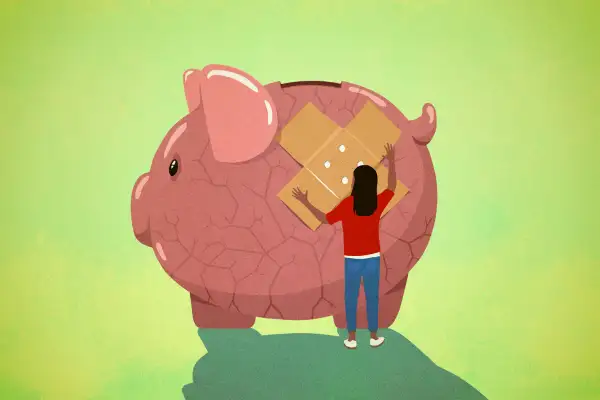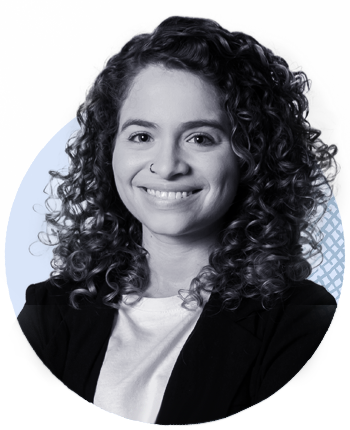Struggling With Debt? Here Are 4 Options to Get Things Under Control

Getting out of debt can feel like a herculean task, particularly if unexpected expenses snowball and your bills keep stacking up.
If your debt load is starting to creep up on you, taking action early is always the best move so you can get a handle on your finances before things start to spiral. But even if you didn’t act quickly, there are still ways to regain control. Your options run the gamut from more minor adjustments, like debt consolidation or payment plans, to bigger course corrections, like debt relief or bankruptcy. The right debt solution for you will depend on your financial situation.
Here are four options to help you get your finances back on track — and who should consider each one.
Debt consolidation
Debt consolidation involves taking out a new loan to pay off your current debts. The goal is to simplify your bills by combining multiple payments into one. Debt consolidation can also help you save you money and pay off your loans faster, especially if you can get approved for a lower interest rate than what you're currently paying on your existing debts.
You can achieve this with a debt consolidation loan, which is a type of personal loan that typically has a lower interest rate than credit cards or other high-interest debts. You can also use balance transfer credit cards, home equity loans or home equity lines of credit (HELOCs).
Bobbi Rebell, certified financial planner at CardRates.com, says debt consolidation is best for individuals who have debt spread across multiple credit cards and loans. However, it typically only makes sense if you can qualify for a lower interest rate, which generally requires a good or excellent credit score. Also, you need a steady income that allows you to make the total monthly payment and the discipline to avoid overspending and taking on more debt.
Debt management plans
Debt management plans (DMPs) are offered by nonprofit credit counseling agencies to help people pay off their unsecured debts, like credit card debt, over a set period of time (typically three to five years).
Through a DMP, a credit counselor works with you to set a budget and negotiate with creditors for lower interest rates or fees. You'll make a single monthly payment to the agency, which then distributes the funds to your creditors. These plans usually come with a monthly fee, typically between $25 and $50, and some agencies may also charge an initial setup fee of around $30 or more.
Debt management plans are worth looking into if you want to avoid the credit impact of debt settlement or bankruptcy. These programs work well if you have a steady income to afford the monthly payments and are committed to following a structured repayment plan. They’re also a good fit for people who need guidance on budgeting and want support from a counselor to regain control of their finances.
These plans do come with some downsides. Rebell says these plans don't address secured debts, like car loans or mortgages. Also, they typically require closing your credit cards. This is to prevent you from adding more debt while you're working on paying off your existing balances. But closing your cards can temporarily lower your credit score by reducing your available credit and increasing your credit utilization ratio (the second most important credit-scoring factor).
Additionally, you may not be allowed to open new credit accounts while you complete the plan, which can limit your financial flexibility. And while most creditors agree to participate in debt management plans, some may refuse, meaning you'll need to manage those debts separately. Finally, note that while credit counselors can negotiate your interest rate, they cannot negotiate to reduce the balance that you owe.
Debt relief
Debt relief programs, also known as debt settlement, debt negotiation or debt forgiveness programs, are offered by debt relief companies that negotiate with creditors to reduce the total debt you owe.
These programs usually take two to four years to complete, during which clients usually stop making payments to their creditors. While in a debt relief program, you make one monthly deposit into a dedicated savings account — this amount is typically less than the minimum monthly payments to your creditors. As you build up funds in that account, the company will contact your creditors to negotiate reduced settlements. You have to approve each negotiated settlement, and then the company uses the money in your savings account to pay the creditor the settled amount. The idea is that creditors may prefer getting a reduced amount paid immediately (or in an agreed series of payments), rather than receiving nothing at all.
These programs are ideal for borrowers dealing with a financial hardship who have significant unsecured debt but who don't qualify for a debt consolidation loan or want to avoid filing for bankruptcy. "If someone isn't earning enough to pay their monthly bills, it makes sense to ask for a debt settlement, especially if that helps avoid filing for bankruptcy," Rebell says.
Debt relief will likely lower your credit score. If you're already behind on payments, though, the impact may not be as noticeable. And once your debts are settled, you should be in a better financial position to start rebuilding your credit.
If you'd prefer to handle debt settlement on your own, it's possible to negotiate directly with creditors without hiring a company. You can contact each creditor, explain your situation and request a reduced payment. While it can be harder to get debt free this way because it takes more time and effort, you can save on the fees associated with debt relief companies. Just be sure to keep track of your payments and document all agreements to avoid any misunderstandings with creditors.
Bankruptcy
Bankruptcy is a legal process that can help people struggling with debt either wipe out some of their outstanding bills or create a plan to pay it off over time.
The two most common types of bankruptcy are Chapter 7 and Chapter 13:
Chapter 7 bankruptcy
Chapter 7 bankruptcy allows most of your unsecured debts to be discharged, meaning eliminated. Basically, it involves selling off some of your non-essential assets (like jewelry or an extra vehicle) to pay your creditors, and any remaining debt is usually forgiven. If you don’t have valuable assets to sell, your creditors receive little to no payment and your debts are still discharged.
Chapter 7 bankruptcy is often a good choice if you have significant unsecured debt, like credit cards or personal loans. However, it may not be available to everyone. To qualify, you need to pass a means test, which looks at your income and overall financial situation. If you earn too much relative to your debts, you’re unlikely to qualify.
Also, Chapter 7 bankruptcy stays on your credit report for 10 years, so it's important to understand the long-term impact on your credit before deciding. "Because you did not pay back your debts, it will be harder to get credit in the future, and you will likely pay higher interest rates when you are able to get credit," Rebell says. Plus, your home could be at risk if you have significant equity that isn’t protected by a homestead exemption, particularly if you're behind on mortgage payments. In such cases, the court may require you to sell it to pay creditors.
Chapter 13 bankruptcy
Chapter 13 reorganizes your debts into a more manageable repayment plan, usually lasting three to five years. You'll make monthly payments to a trustee, who then distributes the funds to your creditors.
Chapter 13 is ideal for those who don’t qualify for Chapter 7 due to a higher income but can still make regular payments. “With Chapter 13, there is no income limit, and you get put on a repayment plan so you likely get to keep your assets — like your home,” says Rebell.
However, Chapter 13 requires consistent payments, which can be tough if your financial situation changes or if you continue to rack up debt. It can also be costly. Filing fees typically cost a few hundred dollars, while attorney fees can add up to $3,000 or more. Additionally, it stays on your credit report for up to seven years, but its impact is usually less severe than Chapter 7. “Your debt would be restructured and your payments would be lower, but you are still making payments. For that reason, Chapter 13 is less damaging to your credit report,” says Rebell.
If you're deciding between Chapter 13 and debt settlement, the best option depends on your goals. Chapter 13 offers a structured, court-approved repayment plan that protects you from creditor actions, including wage garnishments and collection lawsuits. However, it can take up to five years to complete, and if you fall behind on your payments, the court could dismiss your case for nonpayment. Debt settlement, on the other hand, can resolve your debts more quickly and doesn’t require any court supervision, but it offers no legal protection and creditors aren’t obligated to settle.

